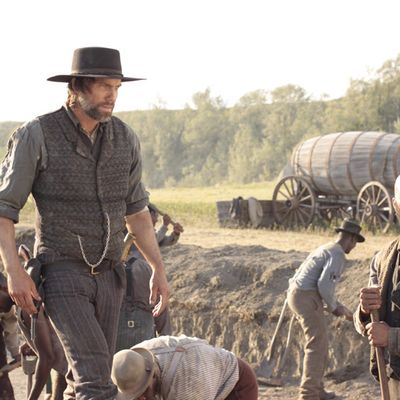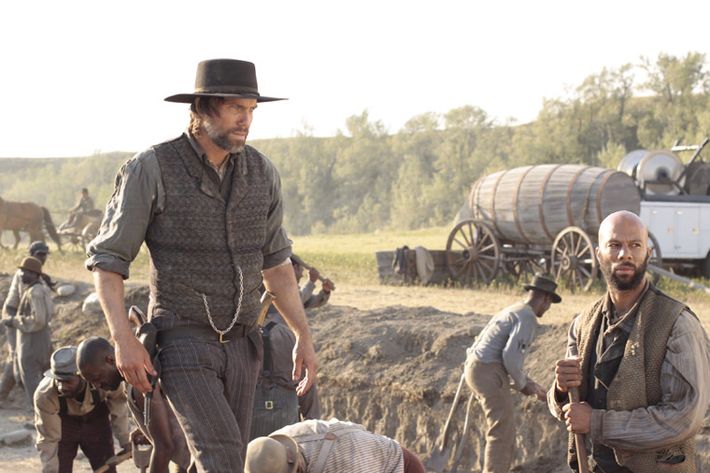

Despite its title, AMCÔÇÖs newest drama Hell on Wheels is not a companion piece to FXÔÇÖs motorcycle-mad Sons of Anarchy. Rather the bloody, mud-spattered costume drama is a companion piece to HBOÔÇÖs Deadwood, a Western set in 1865 Nebraska at the leading edge of the Continental railroadÔÇÖs progress across the plains, in a fetid little pop-up town known as Hell on Wheels (ÔÇ£Population: One less every dayÔÇØ). Immediately postbellum America is a nicely complex and metaphorical moment in which to set a television show: The nation was in the midst of an identity crisis, or as the showÔÇÖs opening title cards more gruesomely put it, ÔÇ£The nation is an open wound,ÔÇØ and so were its citizens. What it was to be an an American of any kind ÔÇö African American, Native American, female, a veteran ÔÇö meant something different in 1865 than it did just months before. Who are Americans, and their nation, in this brave, new, yet recently morally bankrupt world?
All of these folks, and particularly the lawless, prostitute-laden town they call home, unavoidably call to mind the residents of Deadwood. Certainly, there is enough material here, out in the wild, wild, West, for two television shows, and yet Hell does suffer by the comparison. The most immediately obvious distinction ÔÇö after the lack of ÔÇ£cocksuckerÔÇØ ÔÇö is a sense of humor: Deadwood has one. Hell on Wheels does not. This is a red flag. With the tropes of ÔÇ£quality televisionÔÇØ increasingly easy to tick off a check list ÔÇö anti-hero, moral ambiguity, pretty costumes, big themes etcÔÇö the distinction between serious and self serious is harder to make. If it looks like a good show, and it sounds like a good show, and it has a leading man with psychological issues, it must be a good show, right? Not quite. Think of The WireÔÇÖs street talk and Roger Sterling vs. The Playboy ClubÔÇÖs ÔÇÿwe will address every issue of the ÔÇÿ60sÔÇÖ earnestness ÔÇö a seriesÔÇÖ willingness to include humor tends to indicate a security in itself, that itÔÇÖs not so worried about being taken seriously, because it is serious. One suspects that people laughed in 1865, even if there wasnÔÇÖt very much to laugh aboutÔÇö┬áif Hell on Wheels is going to approach Deadwood, it might want to start there.

